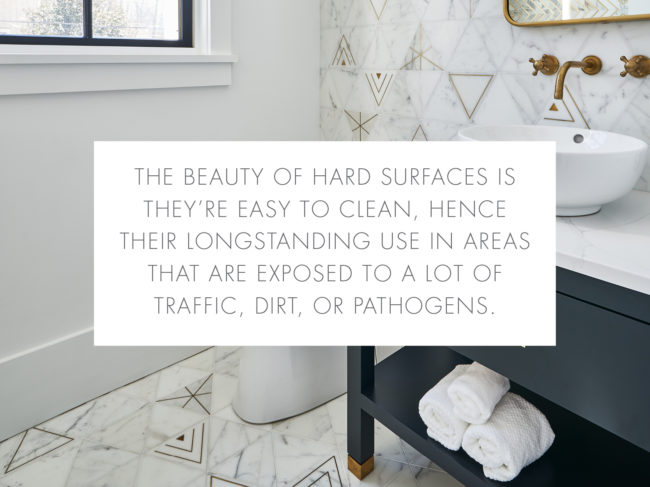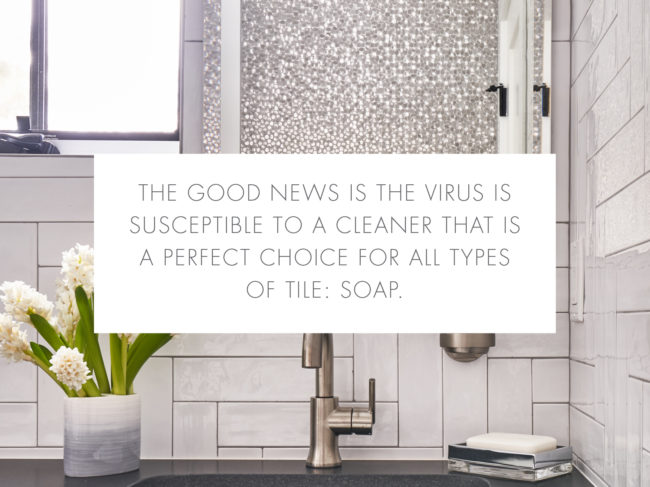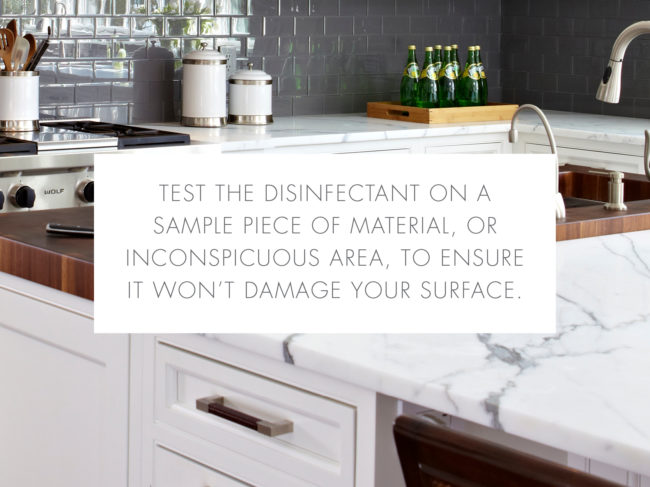News
- About Us
- Products
- How to buy
- Inspiration
- Resources
- Contact Us
- About Us
- Products
- Stone
- Porcelain
- Ceramic
- Glass
- Metal
- Slabs
- Carpet
- Collections
- Essentials
- Specialty & Custom
- Pose Collection
- How to buy
- Inspiration
- Resources
- Contact Us
News
These days everyone is thinking of ways to better protect themselves from viruses and bacteria. The beauty of hard surfaces is they’re easy to clean, hence their longstanding use in areas that are exposed to a lot of traffic, dirt, or pathogens. Slabs, tiles and mosaics are materials most commonly used in areas likely to get dirty such as entryways, kitchens and bathrooms. Compared to softer and more absorbent materials, its simpler and quicker to clean tiled walls, floors and countertops.

Quote-1
Different viruses are killed by different disinfectants. Understandably, most users these days are concerned with eliminating COVID germs. The good news is the virus is susceptible to a cleaner that is a perfect choice for all types of tile: soap. Even before the pandemic, a gentle pH neutral dish soap was the perfect choice to clean any tiled surface, due to its being effective in washing away bacteria and inactivating many viruses, but not damaging to most materials. Research has shown soap dissolves the fatty coating of the COVID virus. Just mix the soap with water in a spray bottle and use a non-scratching scrub pad or soft cloth to thoroughly clean your tiled surface. Thoroughly rinse the area to wash away germs, and to avoid soap scum. If soap scum develops over time, it can be removed with a pH neutral all-purpose cleaner, like FILA Cleanall.

Quote-2
Besides cleaning, there are products that can be used on different surfaces to sanitize or disinfect. For all material types, it’s important to start with a clean surface, as crumbs and grime give bacteria and viruses protected areas to hide and grow. It’s also recommended to test the disinfectant on a sample piece of material, or inconspicuous area, to ensure it won’t damage your surface, and to see how it will impact your grout. Don’t use dyed products as they can stain the material or grout. Finally, disinfectants typically need to be left on the surface in order to do their job, follow instructions on the disinfectant’s bottle.

Quote-3
DISINFECTANTS FOR NATURAL STONE
Because rubbing alcohol is pH neutral, 70% isopropyl alcohol is an appropriate disinfectant for natural stone. Some stones can be finicky so it’s important to test anything that will be used on it before widespread application. Over time, scrubbing can strip sealers off stone, so they may need to be reapplied.
DISINFECTANTS FOR CERAMIC, PORCELAIN, GLASS & QUARTZ
Many disinfectants can be used on these materials, due to their resistance to common household chemicals. 70% Isopropyl alcohol, diluted bleach or 3% hydrogen peroxide can be used.
DISINFECTANTS FOR METAL
For our metal products, 70% isopropyl alcohol is recommended, as some of them have special coatings that may be damaged with harsher chemicals.